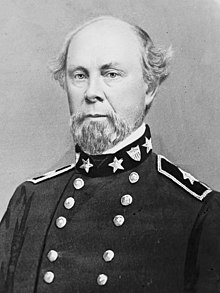Robert Barnwell Rhett | |
|---|---|
 | |
| Deputy to the Provisional C.S. Congress from South Carolina | |
| In office February 4, 1861 – February 18, 1862 | |
| Preceded by | Position established |
| Succeeded by | Position abolished |
| United States Senator from South Carolina | |
| In office December 18, 1850 – May 7, 1852 | |
| Preceded by | Robert Barnwell |
| Succeeded by | William de Saussure |
| Member of the U.S. House of Representatives from South Carolina | |
| In office March 4, 1837 – March 3, 1849 | |
| Preceded by | William Grayson |
| Succeeded by | William Colcock |
| Constituency | 2nd district (1837–43) 7th district (1843–49) |
| 8th Attorney General of South Carolina | |
| In office November 29, 1832 – March 4, 1837 | |
| Governor | Robert Hayne George McDuffie Pierce Butler |
| Preceded by | Hugh S. Legaré |
| Succeeded by | Henry Bailey |
| Member of the South Carolina House of Representatives from St. Bartholomew's Parish | |
| In office November 27, 1826 – November 29, 1832 | |
| Personal details | |
| Born | Robert Barnwell Smith December 21, 1800 Beaufort, South Carolina |
| Died | September 14, 1876 (aged 75) St. James Parish, Louisiana |
| Resting place | Magnolia Cemetery, Charleston, South Carolina |
| Nationality | American |
| Political party | Democratic |
| Other political affiliations | Southern National Party |
| Relations | R. Barnwell Rhett Jr. (son), Alfred M. Rhett (son), Alicia Rhett (great-granddaughter) |
| Occupation | Politician, lawyer, planter, and newspaper publisher |
Robert Barnwell Rhett (born Robert Barnwell Smith; December 21, 1800 – September 14, 1876) was an American politician who served as a deputy from South Carolina to the Provisional Confederate States Congress from 1861 to 1862, a member of the US House of Representatives from South Carolina from 1837 to 1849, and US Senator from South Carolina from 1850 to 1852. As a staunch supporter of slavery and an early advocate of secession, he was a "Fire-Eater", nicknamed the "father of secession".
Rhett published his views through his newspaper, the Charleston Mercury.[1]
His son Alfred M. Rhett commanded a battery at Fort Moultrie at the time of the bombardment of Fort Sumter.[2]
- ^ The Secession Archived March 6, 2017, at the Wayback Machine Charleston News and Courier. December 18, 1960
- ^ Island, Mailing Address: 1214 Middle Street Sullivan's; Us, SC 29482 Phone:577-0242 Contact. "Alfred M. Rhett - Fort Sumter and Fort Moultrie National Historical Park (U.S. National Park Service)". www.nps.gov. Retrieved August 7, 2023.
{{cite web}}: CS1 maint: numeric names: authors list (link)